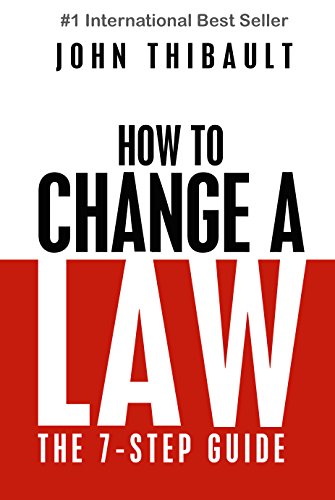Writing a book is a daunting task that will deplete not only your energy but your time as well. And when your book out there to your publisher, you may need to pull some tricks up your sleeve to beat the deadline.
Here are three of the best tips you can use in order to write your book faster without compromising the verbal prowess.
Talk to yourself
It seems like everybody has a book in them but we get stopped because when we sit down to write we start typing or writing in longhand on a yellow legal pad and it just never goes as quickly as it does when we had that brilliant first flash and we could conceptually see the whole book in our mind.
There has been some recent research that people who talk to themselves are actually quite bright. But I guess it depends on where you do it. If you are in a quiet place can you talk to yourself, you have coherent thoughts and you sometimes come away with ideas and it all flows very well.
Your mouth is connected to your brain. And your thoughts come out and are pretty brilliant… sometimes.
So here’s what I mean. Start talking to yourself about your ideas. Make short notes or long paragraphs and just having a running narrative about what you want to say. If you have the Notes app on your iPhone just speak into the phone and capture it.
I have found by doing this over a period of time that the dictation accuracy is around 98%.
You can do it anywhere and what you’ll find is the quality will improve if you are in a quiet place. So just start and pretty soon you will have words on paper.
Oh, one more thing because you’re speaking in your natural voice. It will have the effect like you were talking directly to the reader.
Dictate in the car
The second point is dictate in the car. I am not suggesting that you hold the phone. It can be out the way and should not interfere with your driving. Enough said. But there’s something about the motion, about traveling down the road about letting your mind focus on what’s around you and having the quiet sound of the engine in the background and a concentrated period of time where you are able to dictate without distraction.
Remember thinking is different from speaking. Speaking is different from writing. And writing no matter how you do it is well just different. But focus is important in maintaining a thought stream or flow over a long period of time. It will essentially allow you to connect more thoughts and get deeper into your topic.
In fact by following what I am telling you I actually wrote my book recent book, “How to Change a Law” in less than three weeks. I had a rough outline of what I wanted to accomplish, but then I started riffing on different ideas and things I wanted to include. As I did that I realized that I could change the paragraphs around, later on, do the editing later on, add the footnotes and the references and all of that would help support the main ideas. But do it later on.
To be honest, the editing and moving paragraphs around took more time but when I first got the ideas down I wasn’t worried about spelling and grammar and placement. In fact I threw one chapter out completely and realized it was too esoteric and replaced it with a new chapter that gave specific directions to the reader that became the main thrust of the book.
Once you have your ideas in Notes you can play them back on the iPhone by swiping down from the top with two fingers and Siri or whatever agent you have will read them back to you, as fast or slowly as you want.
Use Rev and iterate
My final revelation was using rev.com. It’s an online software platform where you talk into it directly and in this case, I hooked up a small Rode Lavalier mic to my iPhone. I could speak, stop, pause and arrange my thoughts before I continued. Then I would continue to dictate as I went along.
In the end, I ended up with was a high-quality podcast, and in a very short period of time a written transcript of my dictation.
It costs about one dollar per minute but it’s saved so much time. The thing we forget is that many of us who may be slow authors write at perhaps 30 or 40 words per minute but we can speak at 150 to 200 words per minute with ease. By capturing these thoughts using rev.com I was able to increase my writing speed by 5X and therefore reduce the amount of time it took to write an article, a blog post, or even parts of a book.
In fact, I dictated this article completely for the purpose of this guest post. It’s about 850 words and I did it in less than 10 minutes. I then ran the flesh Kincaid scale in Microsoft Word and the article meets my broad reader requirements.
Enjoy, and I hope these three tips help you. Remember, being prolific is half the game.
 John Thibault is the founder and CEO of iLobby, a SaaS startup platform focused on delivering crowdfunded lobbying to small businesses. He is the author of the #1 International bestseller “How to Change a Law” and “Sway.” Previously he served in government relations at MCA Universal and was the first VP of marketing and business development at eBay and Financial Engines.
John Thibault is the founder and CEO of iLobby, a SaaS startup platform focused on delivering crowdfunded lobbying to small businesses. He is the author of the #1 International bestseller “How to Change a Law” and “Sway.” Previously he served in government relations at MCA Universal and was the first VP of marketing and business development at eBay and Financial Engines.
 He serves as Chairman of the Thibault Foundation, a private foundation focused on children’s health and financial literacy. He has traveled extensively and written several screenplays and novels and been published in magazines including Association News, Manufacturing Today, CEO for High Growth Ventures and Millennial Magazine. He holds a BA from Ryerson University and an MFA from UCLA film school.
He serves as Chairman of the Thibault Foundation, a private foundation focused on children’s health and financial literacy. He has traveled extensively and written several screenplays and novels and been published in magazines including Association News, Manufacturing Today, CEO for High Growth Ventures and Millennial Magazine. He holds a BA from Ryerson University and an MFA from UCLA film school.
He is a Member of Strategic Coach and previously A360. He lives with his wife, three children and a couple of dogs and cats in Silicon Valley. In his spare time he is an intrepid skier, sailor and guitarist. He is not a lobbyist except when he is trying to get the kids to clean their room or do their homework.


